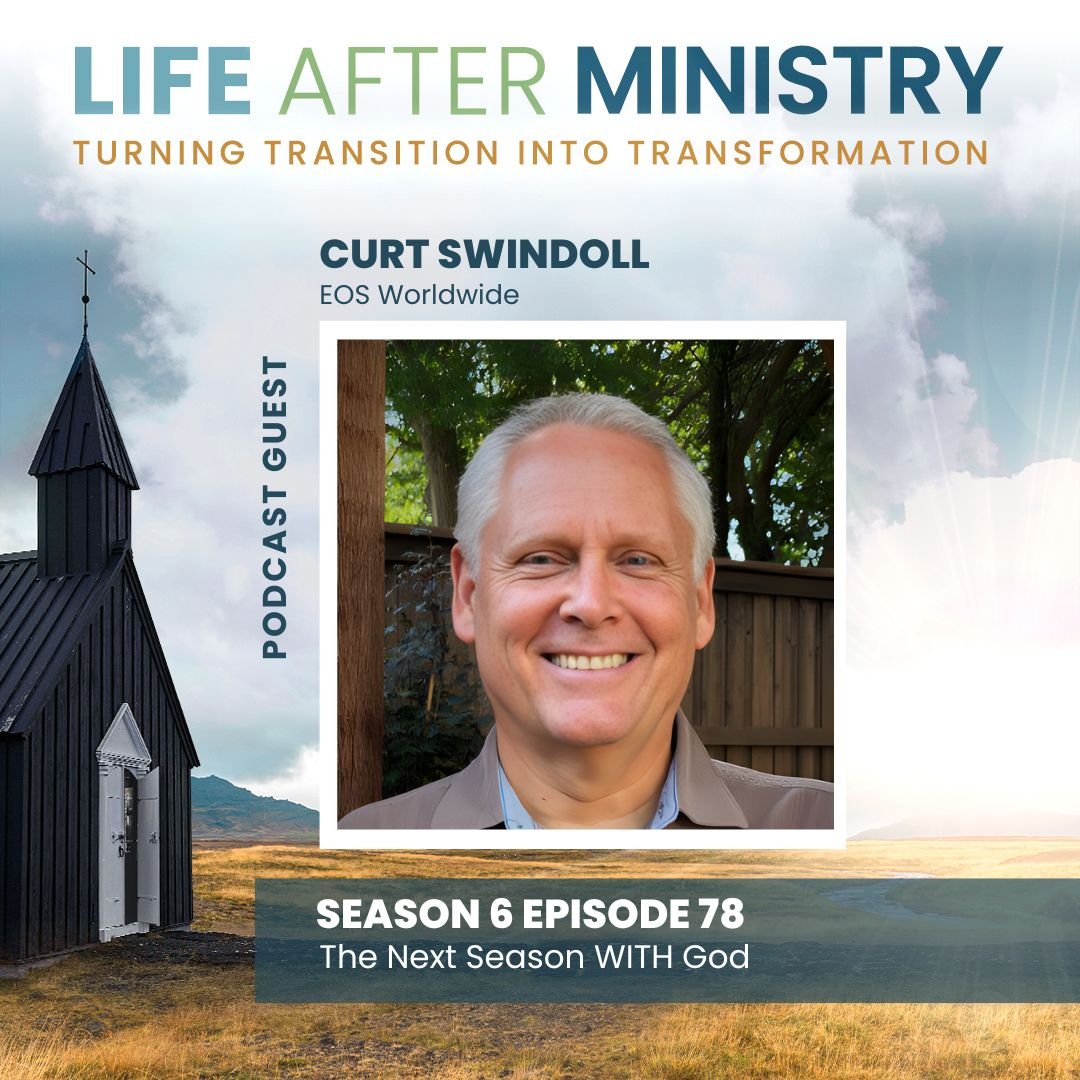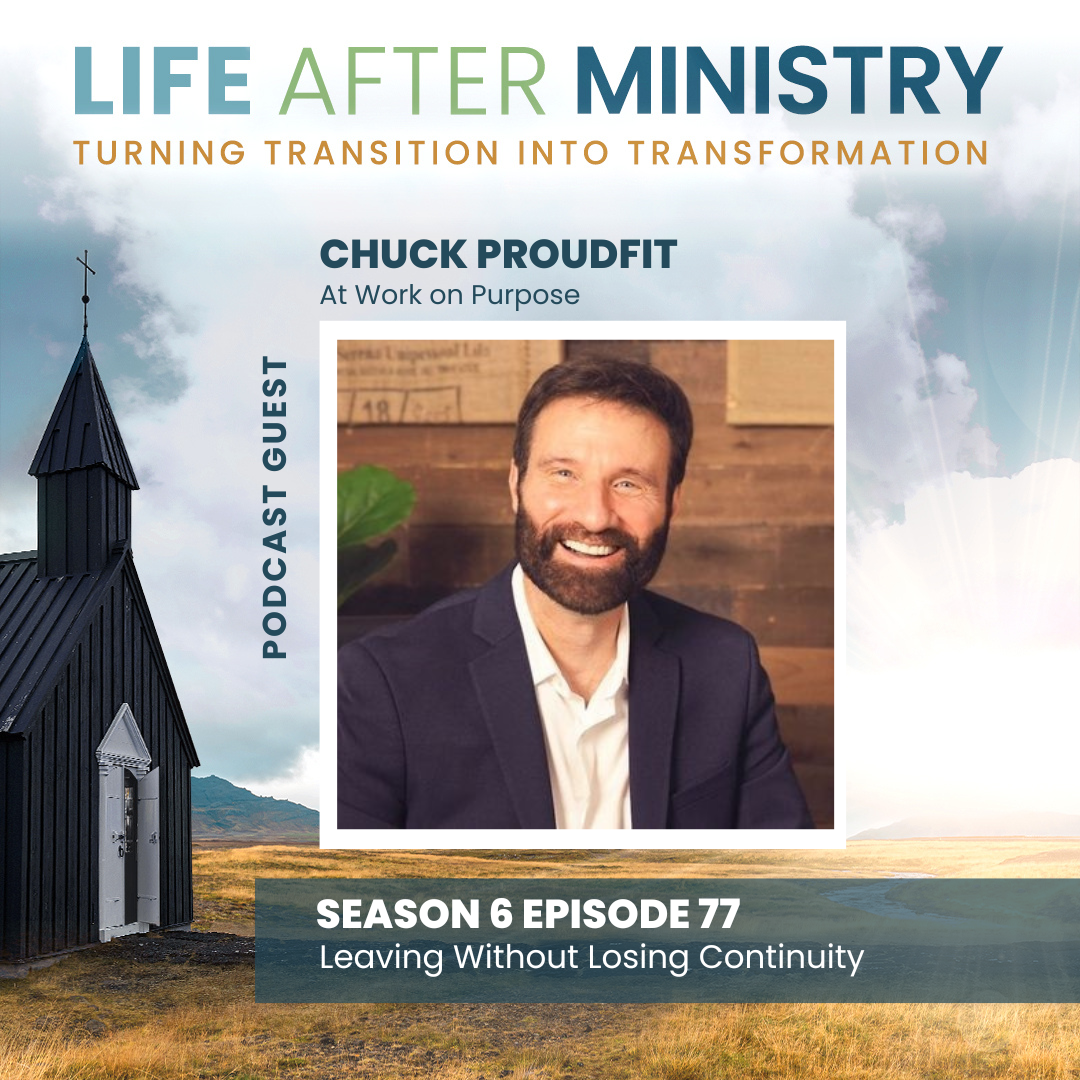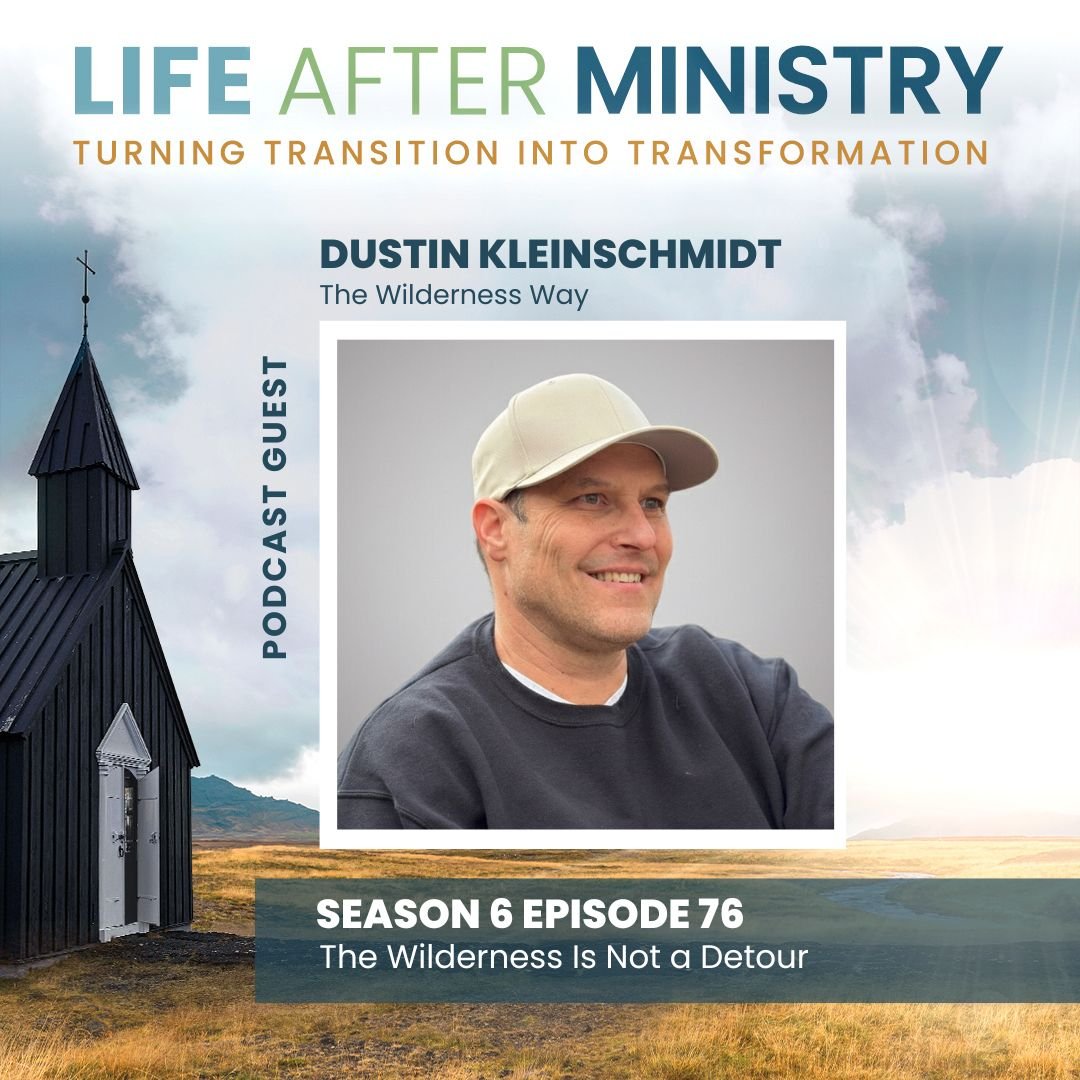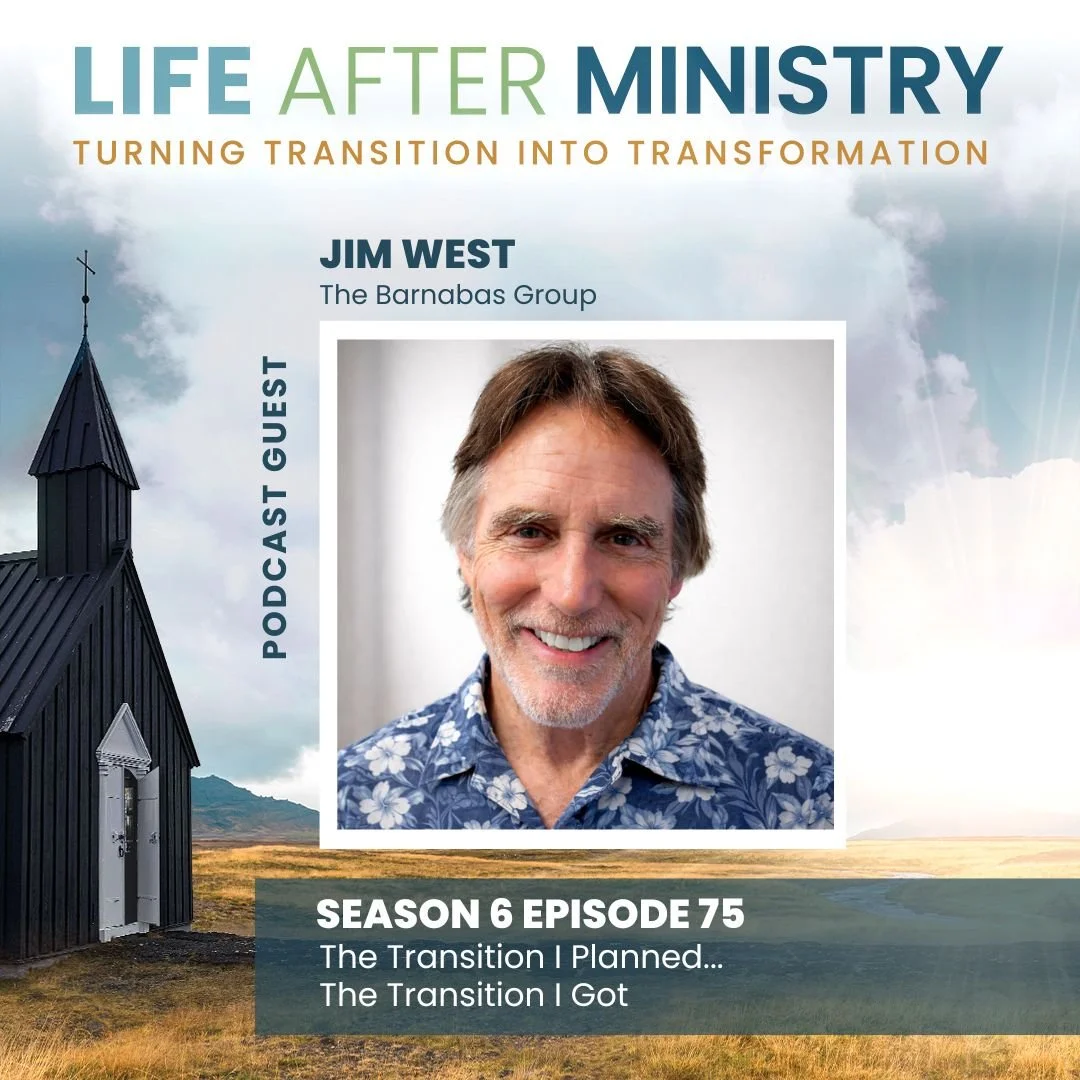The Hidden Work of God in Seasons of Unmaking
There is a particular ache that settles into the soul of someone who has poured their life into ministry only to find the ground shifting beneath them. It is not simply vocational confusion. It is the disorientation of losing the identity, rhythm, and meaning that once seemed immovable. Pastors often describe this moment with surprising honesty: something inside them knows the path forward is unsustainable, yet stepping away feels like stepping off a cliff.
Transitions in ministry carry a weight that few outside the calling can fully appreciate. You are not just leaving a role. You are leaving a community, a spiritual home, a personal history, and often a version of yourself that you’ve believed was central to God’s purpose in your life. When everything begins to unravel, it is common to assume the unraveling is failure. But Scripture invites us to see it differently. Sometimes God allows an unmaking so that He can rebuild something more faithful, more free, and more deeply rooted in Him.
Many leaders sense this long before they can articulate it. It begins with an undercurrent of tension, a quiet dissonance between the work they’re doing and the person they’re becoming. The energy required to sustain their ministry life outpaces the energy they receive from it. Their spouse sees it first. Their children feel it without naming it. Their bodies hold it in exhaustion, irritability, or numbness. Eventually, the soul begins to whisper what the mind refuses to acknowledge: something has to change.
This moment is frightening because it disrupts the stories we’ve told ourselves about calling. We assume that because ministry is sacred, every season of ministry must last forever. We confuse longevity with faithfulness. Yet the Bible tells a different story. Abraham leaves home with no map. Moses spends decades in obscurity before stepping into the calling that defines him. Elijah burns out under a broom tree before God whispers a new assignment. Paul experiences repeated disruptions—geographical, vocational, even relational—because faithfulness is always dynamic.
God rarely gives us the next five steps. More often, He gives the next right step, and then waits for us to trust Him with the others.
When Pain Becomes a Teacher
For some leaders, the transition comes through a gentle but undeniable pull. For others, it comes through pain so sharp it breaks something open. Pain is not always punitive. Sometimes it is diagnostic. When staying becomes more harmful than leaving, God may be using that discomfort to surface deeper wounds we have ignored.
The Psalms give us language for this season. Psalm 34 declares that “the Lord is near to the brokenhearted and rescues those who are crushed in spirit.” Notice the promise is not that God removes the crushing. It is that He draws near in the midst of it. For a leader whose identity has been fused to ministry, this nearness often becomes the first experience of God not as employer or evaluator, but as Father.
And that begins to reorient everything.
The Lord’s Prayer as a Framework for Rebuilding
The Lord’s Prayer is so familiar that many of us recite it without noticing its shape. But in seasons of transition, its structure becomes a lifeline. Jesus begins not with our needs but with our name for God. Our Father. Before any request, before any direction, before any clarity, we are grounded in belonging. We are not abandoned employees. We are children.
This simple truth confronts the fear that often paralyzes ministry leaders in transition. If God is Father, then He is not indifferent. He is attentive. He moves toward suffering, not away from it. The Exodus story is the backdrop of this prayer. God hears the cries of His people and comes down to rescue them. When Jesus invites us to call God Father, He invites us to step into that same story of deliverance, even when the path leads through the wilderness.
Then Jesus teaches us to pray, Your kingdom come, Your will be done, on earth as it is in heaven. This is the clarifying center of the prayer. It names the true calling beneath every assignment. Our vocation may change. Our ministry context may shift. Our titles may come and go. But the calling remains the same: to partner with God in bringing His will and His way into the world.
Leaders often lose sight of this distinction. They assume the assignment is the calling. So when the assignment ends, they fear the calling has evaporated. But the Lord’s Prayer reminds us that our primary work is not tied to a job description. It is tied to the advance of God’s kingdom. And that can happen in a pulpit or a classroom, in the marketplace or in a wilderness season, in formal ministry or in the quiet restoration of a soul learning to breathe again.
Daily Bread and the Discipline of Trust
Transitions force us to pray in the present tense. Give us today our daily bread. Not tomorrow’s strategy. Not next year’s security. Just today’s provision. This is the prayer of someone learning to walk again. When the future is unclear, God often withholds the illusion of control so that we learn the reality of dependence.
Daily bread is both provision and pace. It anchors us in the slow, faithful rhythm of God's timing. Leaders accustomed to productivity often resist this pace. They want a plan, a guarantee, a clear path back into meaningful work. But God is more concerned with forming us than employing us. And formation does not happen at the speed of urgency.
Forgiveness, Release, and the Healing of the Past
Transitions expose old wounds—betrayals, disappointments, unresolved conflicts, and the quiet sacrifices no one ever saw. Jesus includes forgiveness in the prayer because forward movement is impossible without release. This is not sentimental. It is spiritual survival.
Forgive us our sins, as we forgive those who sin against us. The order matters. We receive grace before we extend it. Leaders too often reverse that order. They give away grace they never allow themselves to receive, attempting to outpace their pain through self-sacrifice. But in transition, God often invites us to receive first. To allow Him to name our wounds, cleanse our shame, and heal the parts of us that have been held together by duty rather than devotion.
Release is part of redemption. It clears the ground for new life to grow.
Deliverance and the Path Forward
Lead us not into temptation, but deliver us from evil. In seasons of transition, the temptation is often to grasp for control, medicate the uncertainty, or force the future. But deliverance is not only rescue from danger; it is rescue from self-reliance. It is freedom from the belief that the future rests entirely on our shoulders.
The God who led Israel through wilderness leads us still. Our job is not to map the entire journey but to trust the One who walks with us.
A Way Forward for the Leader in Transition
If you find yourself in a season of unraveling, here are truths drawn from Scripture and the heart of the Lord’s Prayer:
God is not withholding clarity to punish you. He is forming you for what’s next.
You don’t need the entire plan. You need the next faithful step.
Your calling is bigger than your assignment.
You are not alone. God and community carry you when you cannot carry yourself.
Waiting is not wasted time. It is holy ground where old identities die and new ones are born.
Your story is not over. In fact, this may be the first time in years that God finally has the space to show you who you are beyond what you do.
If you’re navigating a transition, facing a forced resignation, preparing for succession, or simply unraveling quietly under the weight of ministry, reach out. You don’t have to make these decisions alone.
Visit https://ministrytransitions.com to schedule a confidential conversation or to give toward a leader who is carrying more than they can name.
And if you want to explore the formative power of the Lord’s Prayer as a companion in this season, engage the resources at https://thelordsprayer.com. They offer a film, a forthcoming episodic series, and a new book designed to walk with you as God leads you into what’s next.
There is life after ministry. And God is already in the future preparing it for you.
With 25+ years in faith-based executive leadership, Matt Davis knows the wins, the losses, and everything in between. As Executive Pastor, he led a team of 140+, tackling the challenges that come with big vision and real impact. As President of Ministry Transitions, he guides churches through tough leadership changes. Matt and his wife, Marilee, host the Life After Ministry Podcast, where they dive into real talk with former pastors who’ve found their kingdom assignment beyond church walls - unfiltered stories of grit, growth, and God’s purpose beyond the pulpit.







